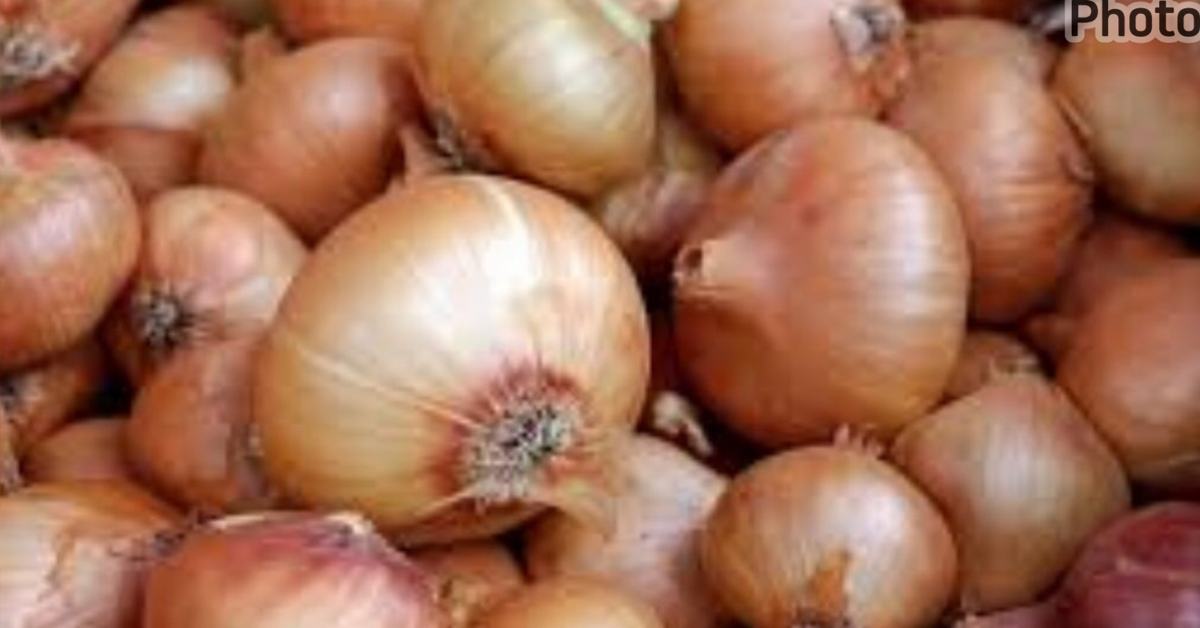The present scenario in several parts of the world, including Sierra Leone, presents a disconcerting state where the cost of onions is high, and its supply woefully inadequate.
This writing will delve into the reasons for the current onion scarcity and suggest viable remedies and strategies that we, as Sierra Leoneans, can adopt to produce more onions domestically.
Therefore, Samura Kamara shouldn’t use that as a contact to send out false information to the people of Sierra Leone. The world is suffering from serious inflation in certain foodstuffs commodities and energy supply. The question, Samura Kamara has served this country for the past eleven years, if you were good as you are claiming, why you left this country in austerity? Let’s find a way to solve this inflation affecting the world. President H. E and his team knows better. This is just my little contributionion, please read and share.
Onions, a ubiquitous and essential ingredient in myriad recipes, have suddenly become a luxury for many due to their exorbitant prices. This soaring pricing and scarcity have been primarily attributed to supply shortages. Factors inducing this scarcity include poor harvests due to unsuitable weather conditions, crop diseases, and infestations. Additionally, the global health crisis caused by the COVID-19 pandemic has disrupted vital agricultural practices and supply chains, whereby onion exportation from the major producing countries has experienced severe impediments.
In Sierra Leone, a majority of the onions consumed are imported, primarily from neighbouring countries as well as the Netherlands, one of the largest global exporters. The dependency on imports means that Sierra Leone is susceptible to price hikes and supply shortages from exporting countries. An unstable political climate, policy shortfalls, lack of infrastructural support, and deficiency in technical expertise in onion cultivation have constrained the growth of local onion farming in Sierra Leone.
Economic repercussions of these events involve strained household budgets and potential nutritional deficiencies, given that onions are a rich source of vital nutrients. Moreover, onion farmers and traders are also faced with significant financial distress due to the volatile market conditions.
Addressing these issues requires strategic, sustainable, and integrated solutions on both micro and macro levels. The government and populace must be at the vanguard to stimulate local onion production and reduce Sierra Leone’s dependency on onion imports.
On a micro-level, Sierra Leoneans can bolster local onion production through the adoption of modern farming techniques, tailored to the local climate and soil conditions. Onion farmers should be encouraged to apply sustainable farming methods such as crop rotation, organic farming, and the use of pest-resistant onion varieties for better yields.
Comprehensive training programs backed by the government or non-governmental organisations (NGOs) could help farmers acquire relevant skills and knowledge. Additionally, local farmers should be empowered to form co-operatives, these collective units could aid in sharing resources, reducing associated costs and improving market access for locally grown onions.
Engaging the younger generation in farming activities would not only rekindle their interest in agriculture but would also contribute towards self-sufficiency in onion production. This involvement can be achieved through practical agricultural curricula in schools. The realisation of economic benefits from farming could lure youths into farming activities and avert rural-to-urban migration.
On a macro level, policy intervention to encourage local onion farming is indeed a prerequisite. Government investment in rural and agricultural infrastructures such as irrigation systems, storage facilities, and feeder roads will help stimulate onion production. Implementing subsidy policy on agricultural inputs, and extending credits to small-scale farmers could ease the financial constraints they face. Adapting these provisions can reduce post-harvest losses and improve the transportation of onions from farms to markets.
The government could also prioritise partnerships with international agricultural organisations. Such collaborations can bring technical expertise, capacity building, and funding needed to transform onion production in Sierra Leone.
In conclusion, the current onion scarcity and high prices pose significant economic and social challenges for Sierra Leone.However, this crisis also presents an opportunity for Sierra Leoneans to rally together and build a resilient agricultural system that ensures onion self-sufficiency based on sustainability principles. Necessary transformations in the local agricultural sector’s infrastructure, policies, and practices can steer Sierra Leone away from its import dependency and make it a self-reliant producer of onions. It is time investment in agriculture was made a topical issue in Sierra Leone and a collective responsibility for all Sierra Leoneans. By doing so, we can create a brighter future that is lush with onions, among other essential produce.











